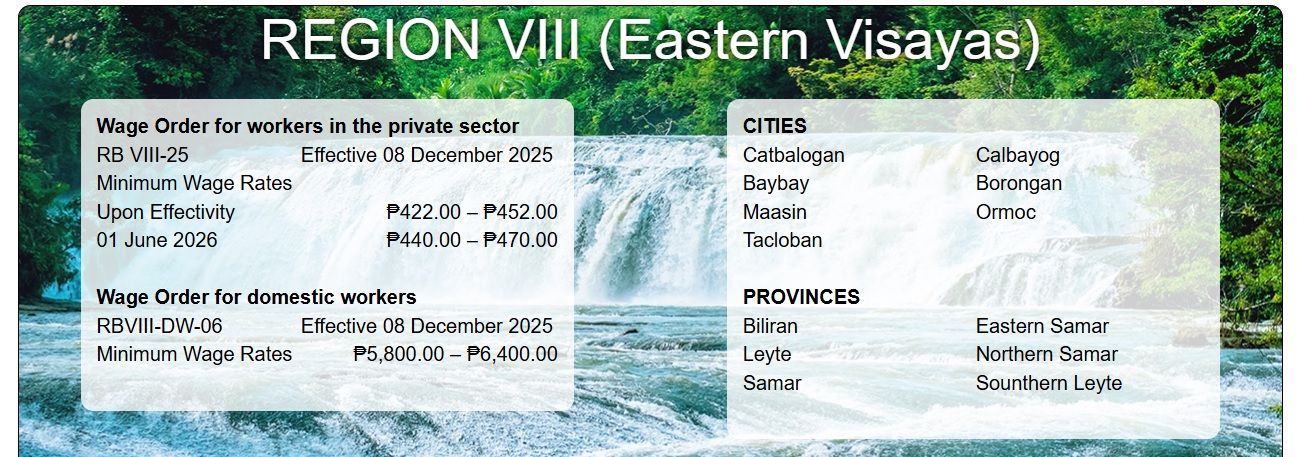Eastern Visayas domestic workers will see their pay rise starting December 8, 2025, following a decision by the Regional Tripartite Wages and Productivity Board (RTWPB).
Under Wage Order VIII-DW-06, kasambahays in chartered cities and first-class municipalities will receive a minimum monthly wage of ₱6,400, an increase of ₱400.
Those in other municipalities will earn at least ₱5,800, up by ₱300 from the current rate.
Private sector workers in the region will also benefit from wage adjustments.
Daily minimum wages for non-agriculture, service, and retail employees in establishments with more than 10 workers will rise from ₱435 to ₱470, implemented in two phases: ₱17 starting December 2025 and ₱18 in June 2026.
The wage increase reflects efforts to keep pace with rising costs of living and inflation, which have steadily eroded household purchasing power.
According to authorities, the increase is simply a recognition of the vital role kasambahays play in households across the region.
These workers, often under informal employment arrangements, have limited access to labor protections and benefits.
For many, their wages form a significant portion of family income, and even modest increases can provide meaningful relief.
Yet, labor advocates stress that while welcome, the hike remains modest in scope.
Compared with other regions, Eastern Visayas still lags.
Some municipalities in Central Visayas, for instance, have raised kasambahay salaries to ₱7,000, highlighting a disparity that underscores the ongoing undervaluation of domestic labor nationwide.
“This is a necessary step, but not sufficient,” said a labor advocate.
“Kasambahays provide essential services and yet remain among the lowest-paid workers. Their labor deserves consistent, fair compensation, not incremental adjustments dictated by political cycles.”
The wage hike also raises broader questions about labor policy in the Philippines.
Domestic work, largely invisible in formal economic metrics, has long been undervalued despite its social and economic importance.
Experts argue that incremental raises, though helpful, cannot substitute for systemic reforms, including better enforcement of the Kasambahay Law and regular regional wage reviews.
On the other hand, while the news may be favorable to the workers, several employers complain that the rates are now too high and do not increase parallel to their income.
This means that many might stop hiring more employees which could result in the increase of unemployment rate in the region.
For now, Eastern Visayas kasambahays and workers will welcome the increase, which provides a modest but tangible boost to their earnings.
Beyond numbers, however, the hike serves as a symbolic acknowledgment of their contribution to the region’s households.
It is a step forward, albeit one that highlights the persistent gap between recognition and adequate compensation for some of the country’s most indispensable workers.
#WeTakeAStand #OpinYon #OpinYonNews #WageHike #RTWPB

